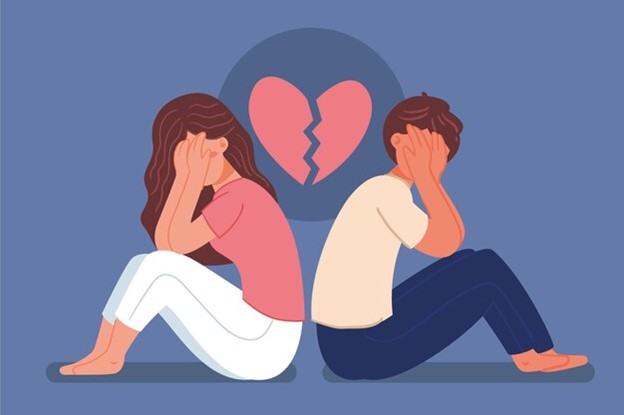Accidents, sudden and unforeseen, can turn lives upside down in the blink of an eye. According to recent statistics, millions find their worlds altered by unexpected events every year, leading to a cascade of physical, emotional, and financial losses.
Personal injury attorneys can offer guidance through the complexities of recovery and compensation for victims. This article discusses how an accident impacts a victim’s quality of life, exploring the multifaceted consequences and the journey towards adaptation and resilience.
Through this exploration, we gain insight into the challenges faced and the strength and perseverance it takes to rebuild a life post-accident.
Physical Consequences of Accidents
When accidents strike, they leave in their wake a range of physical injuries, some visible and others lurking beneath the surface. Common injuries include fractures and head traumas, which can range from mild concussions to severe brain injuries. But the physical toll often extends beyond the immediate aftermath.
Many victims grapple with chronic pain or find themselves confronting long-term disabilities. These persistent physical effects not only alter day-to-day life but also serve as a constant reminder of the accident’s impact.
Emotional and Psychological Effects
The aftermath of an accident often plunges victims into an emotional storm, where trauma and distress cloud their everyday existence. This turmoil is not just about physical pain; it’s a psychological battle against anxiety, depression, and, in some cases, post-traumatic stress disorder (PTSD).
These mental health challenges can be as debilitating as physical injuries, casting long shadows over victims’ lives. They subtly weave into the fabric of daily living, affecting relationships, work, and personal well-being.
Social and Relationship Changes

Accidents often redraw the social landscape of a victim’s life. Their interactions and relationships inevitably shift as they adapt to new physical and emotional realities. Close-knit bonds might strengthen, while others, strained by the challenges, may fray. Family dynamics often undergo significant changes as roles and responsibilities are reassessed.
Friendships, too, can transform, sometimes deepening with empathy and other times dissolving under the strain. Amid these shifts, finding strategies to maintain and rebuild social connections becomes vital for emotional support and recovery.
Financial and Occupational Implications
The ripple effects of an accident often crash into the financial shores of a victim’s life. Mounting medical bills and the potential loss of income create a daunting economic burden. The injury might temporarily or permanently impede one’s ability to work, stalling career progression and financial stability.
Amid these challenges, understanding legal avenues for compensation and exploring financial support options have become crucial. Navigating this terrain often requires expertise, as victims seek to secure the resources necessary for their journey toward healing and normalcy.
Lifestyle Adjustments and Adaptations
Post-accident life often necessitates significant lifestyle adjustments and adaptations. Daily routines and activities that were once taken for granted may require reevaluation and change. This transition can involve adopting adaptive technologies that aid in mobility or communication or modifying homes to accommodate new physical limitations.
These adjustments, while challenging, are vital steps in reclaiming independence and comfort, and they mark the beginning of a new chapter in the journey of adaptation and personal growth.
Coping Mechanisms and Support Systems
In the wake of an accident, embracing effective coping strategies becomes essential for healing and recovery. Support groups, therapy sessions, and community resources offer invaluable platforms for sharing experiences and gaining strength from others facing similar challenges.
These support systems play a pivotal role in fostering resilience, and promoting self-care, and guiding victims through the emotional and psychological complexities of post-accident life. Embracing these resources can significantly aid in building a foundation of strength and hope for the future.
Conclusion
In this exploration, we discussed the multifaceted impact of accidents on victims’ lives, from physical and emotional challenges to social, financial, and occupational troubles. Each journey is unique, marked by personal struggles and triumphs.
As these individuals face a path of recovery and adaptation, their resilience shines through, reminding us of the human spirit’s capacity to overcome and rebuild even in the face of adversity.
Did you find this helpful? Check out our other helpful articles on our website.
Read Also
- The Role of Ingredients in Your Skincare: What to Look ForSkincare works best when you understand what goes into the products you use daily. Ingredients form the foundation of every formula and determine how the skin reacts over time. Each cream, cleanser, or serum has its own role, determined by its ingredients. Learning what to look for helps you pick products that help skin and… Read more: The Role of Ingredients in Your Skincare: What to Look For
- Your Guide to Finding a Trusted DentistChoosing the right dentist in Sandgate or your area is crucial for maintaining good oral health and achieving a confident smile. With countless dental practices to choose from, patients may find the task daunting. Data from the American Dental Association indicates that there are over 200,000 practicing dentists in the United States, highlighting the importance… Read more: Your Guide to Finding a Trusted Dentist
- Achieving a Defined, Balanced Facial Contour in SingaporeA well-defined jawline and a gently tapered lower face — commonly referred to as a V-shaped face — is a look many people aspire to. In Singapore’s beauty and aesthetic scene, treatments that help refine facial contours have grown in popularity as more individuals seek subtle, natural enhancements that boost confidence and balance facial features.… Read more: Achieving a Defined, Balanced Facial Contour in Singapore
- The Wellness Blueprint: How Your DNA Holds the AnswerGenetic testing is revolutionizing preventive healthcare by offering insights into individual health risks. By analyzing DNA, these tests provide a personalized health blueprint that can guide lifestyle and medical decisions. This approach, often referred to as DNA wellness testing, helps to optimize health naturally and prevent potential diseases. In recent years, genetic testing has become… Read more: The Wellness Blueprint: How Your DNA Holds the Answer
- Exploring the Benefits of Infusion Therapy in OKC: The Ultimate GuideUnderstanding Infusion Therapy: A Deep Dive into Its Purpose and Process What exactly is Infusion Therapy? Infusion therapy is an advanced medical treatment that delivers medication and nutrients directly into the bloodstream through a vein, typically via an IV (intravenous) line. This method is particularly beneficial for patients who require a concentrated dose of medication,… Read more: Exploring the Benefits of Infusion Therapy in OKC: The Ultimate Guide
- Ketamine-Assisted Therapies: Impacts on Employee WellbeingWorkplace stress is common today. Many employees feel tired, anxious, or burned out. Regular therapy can help, but some people need more support. Ketamine-assisted therapy is showing good results for mental health. A ketamine-assisted therapist guides each session safely. This therapy can improve mood, focus, and energy. Learning more about it can help teams stay… Read more: Ketamine-Assisted Therapies: Impacts on Employee Wellbeing
- The Future of Men’s Health: Why Telehealth Is Here to StayTelehealth isn’t just a pandemic trend that faded into the background. For Australian men, it has become one of the most practical, time-saving, and stress-free ways to manage everyday health — and it’s shaping the future of how we access care. Platforms like DOCTO, an Australian online doctor and specialist telehealth service, are leading the… Read more: The Future of Men’s Health: Why Telehealth Is Here to Stay
- How to Build a Simple, Clean Skincare Routine ?You don’t need a complicated skincare routine. It doesn’t have to be something that requires twenty different products and confusing steps. Your routine works well with just a few high-quality clean ingredients. The beauty industry keeps pushing more products, but your skin actually needs less. You only need a simple approach to get better results… Read more: How to Build a Simple, Clean Skincare Routine ?









